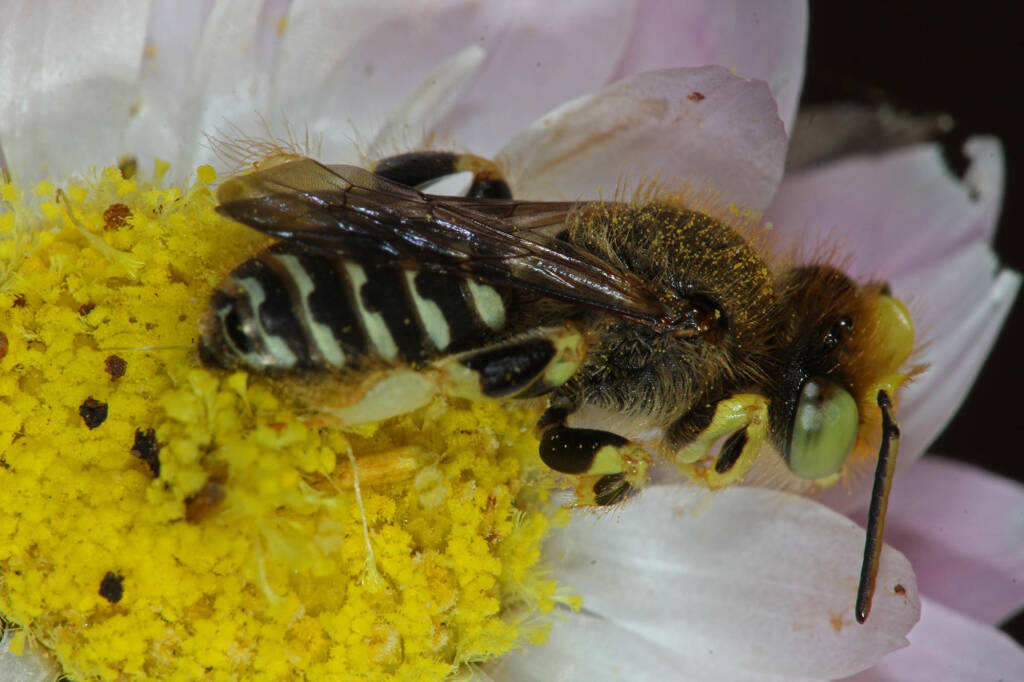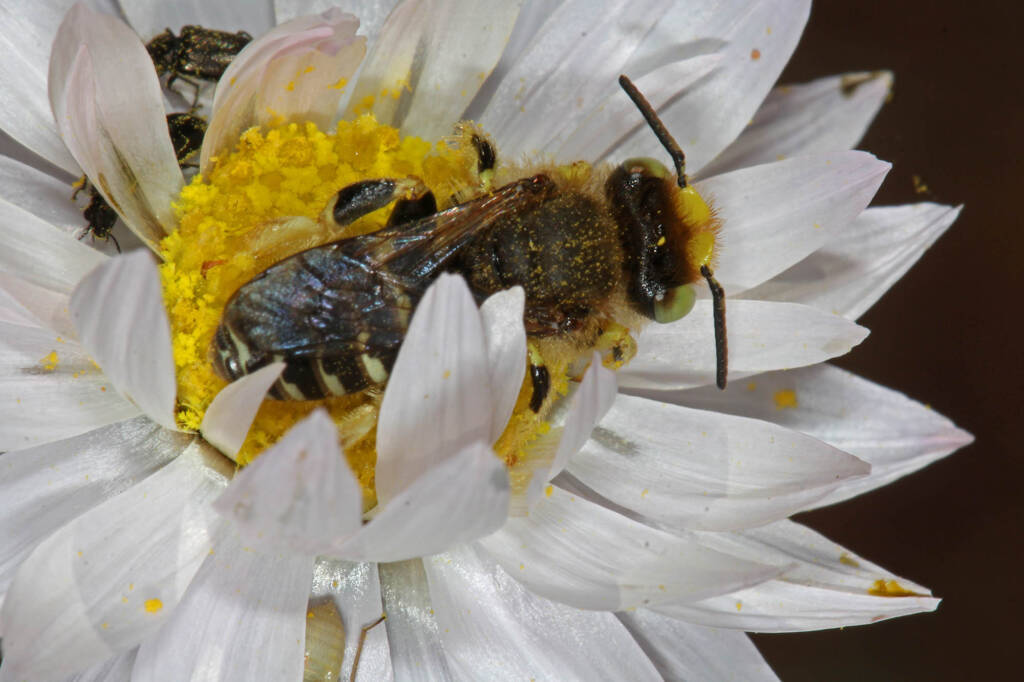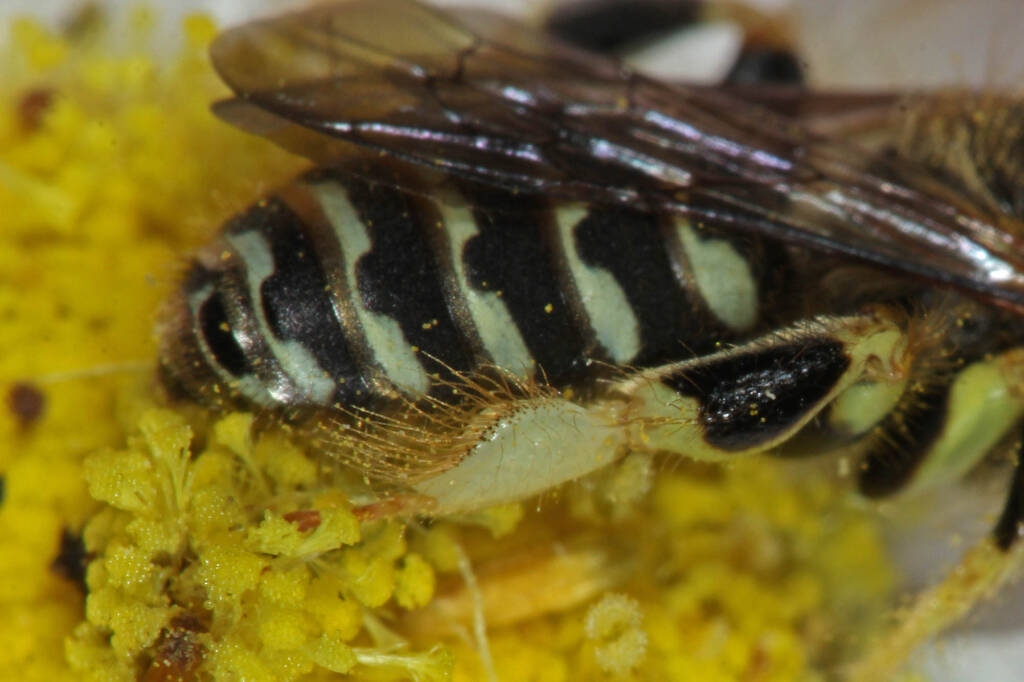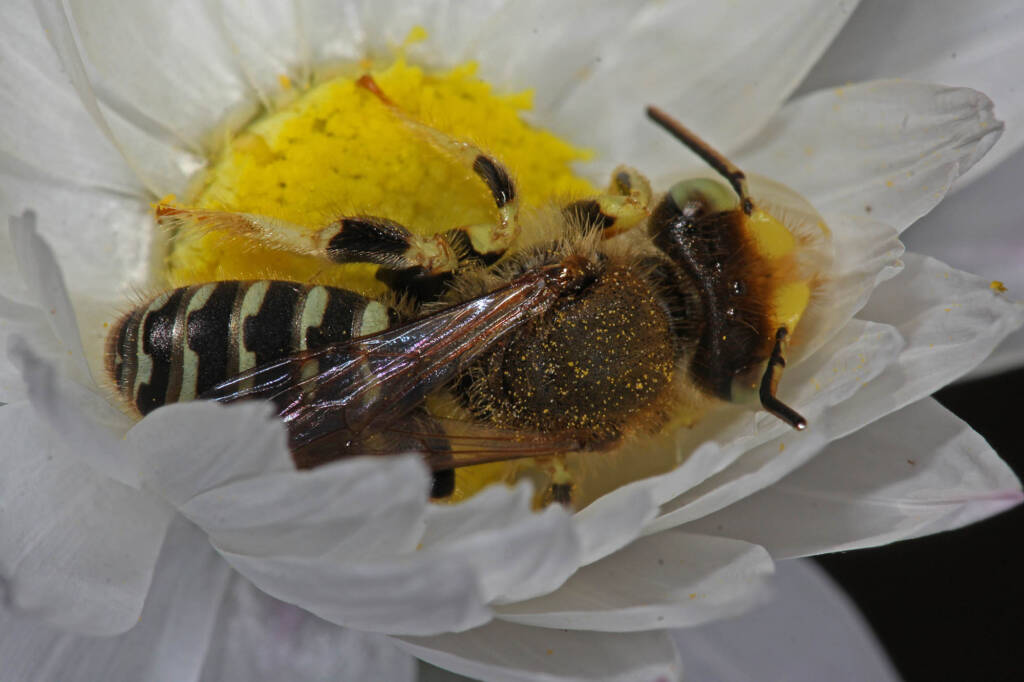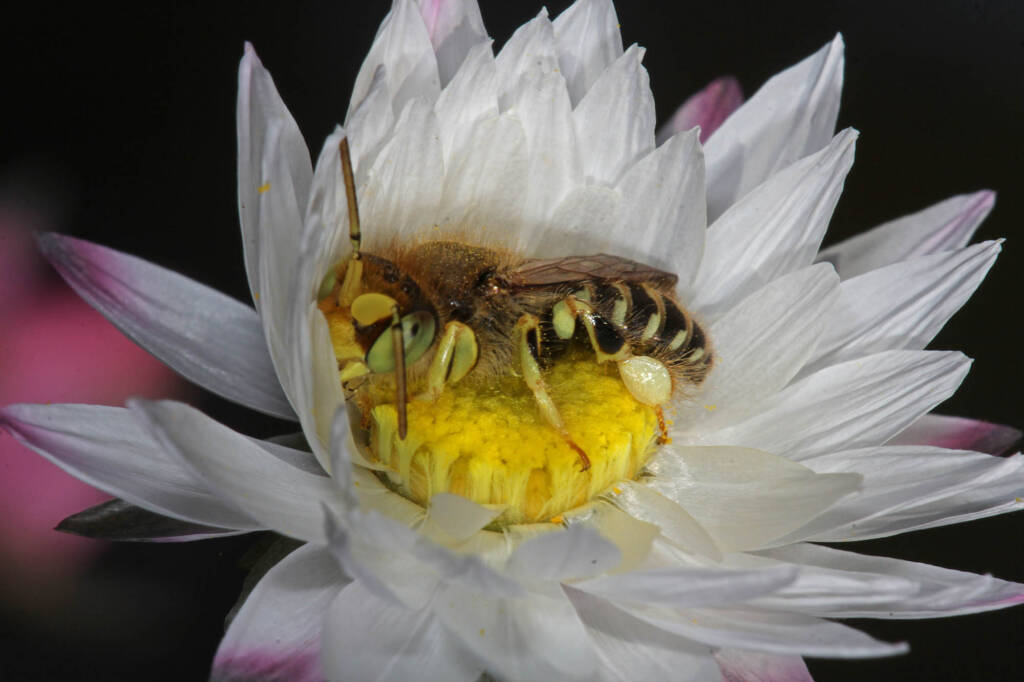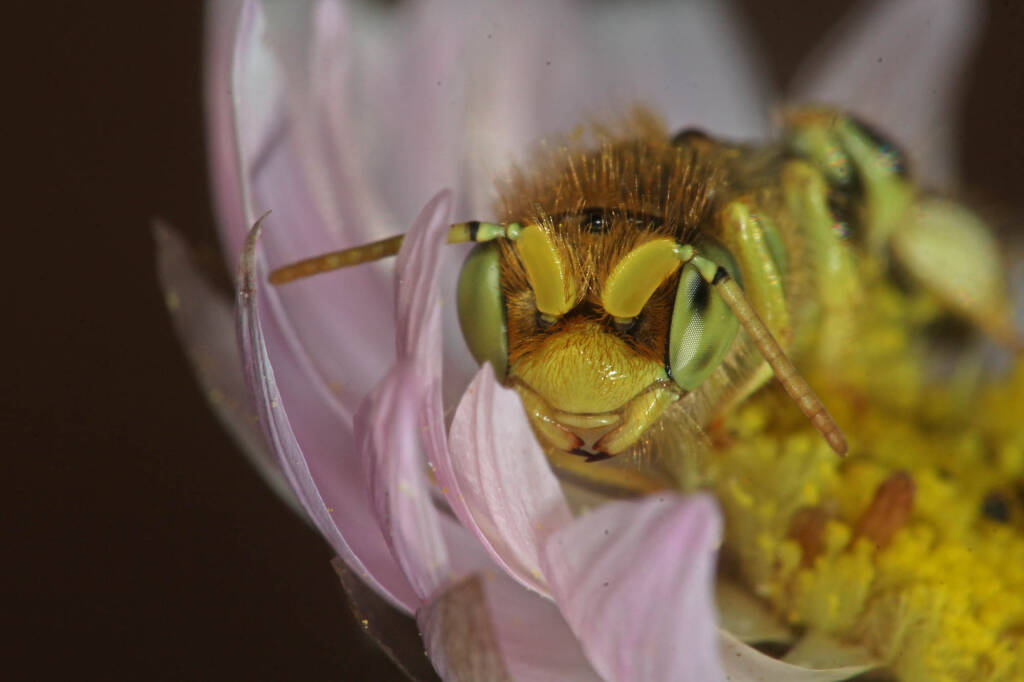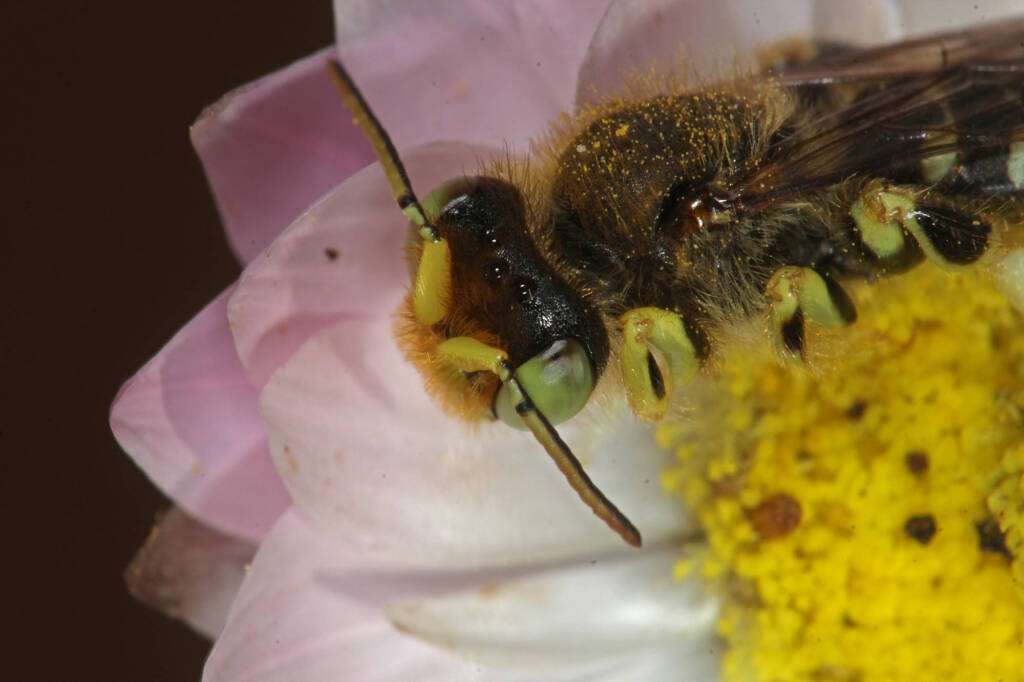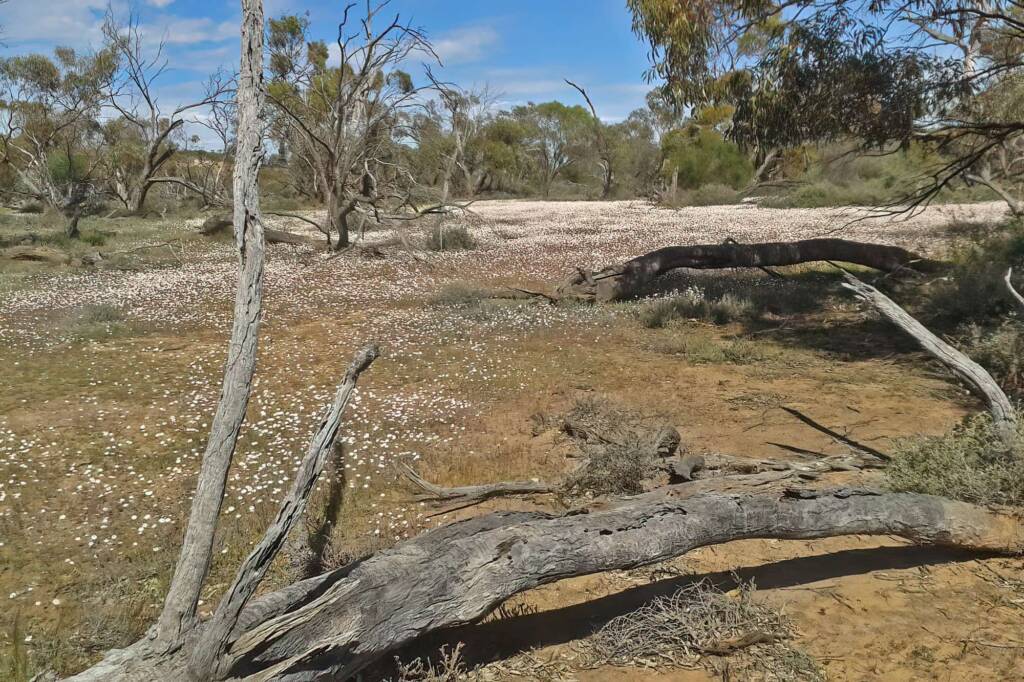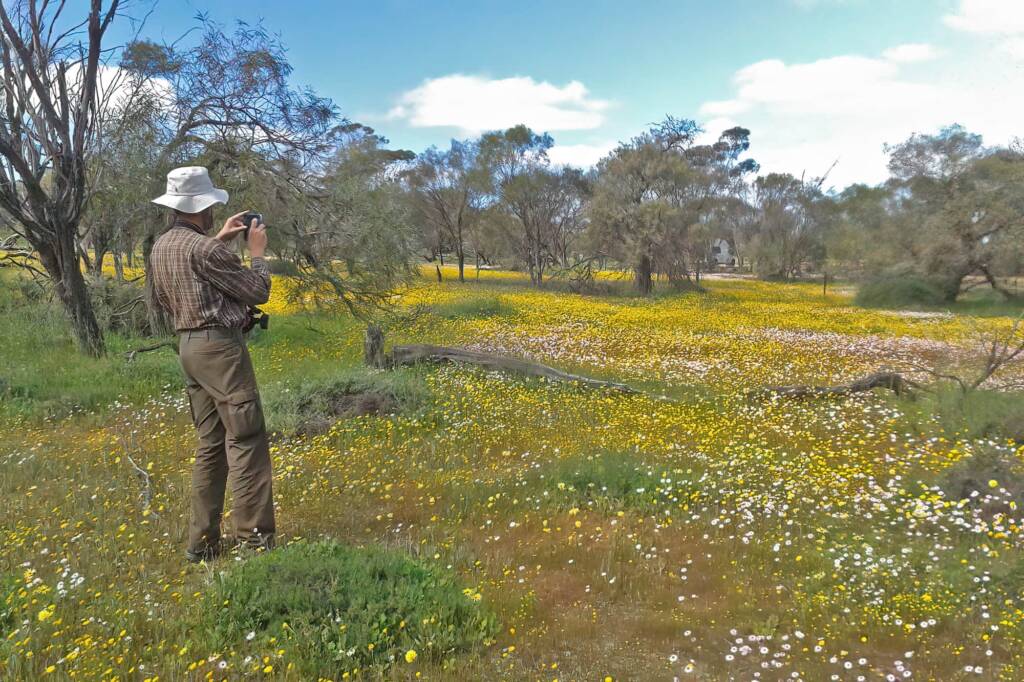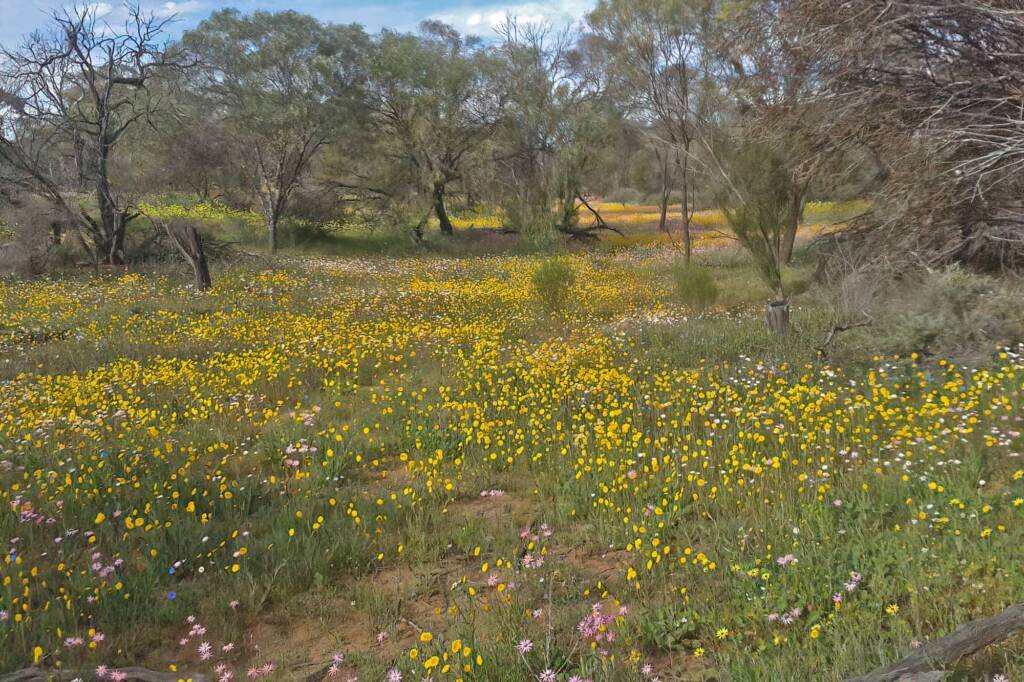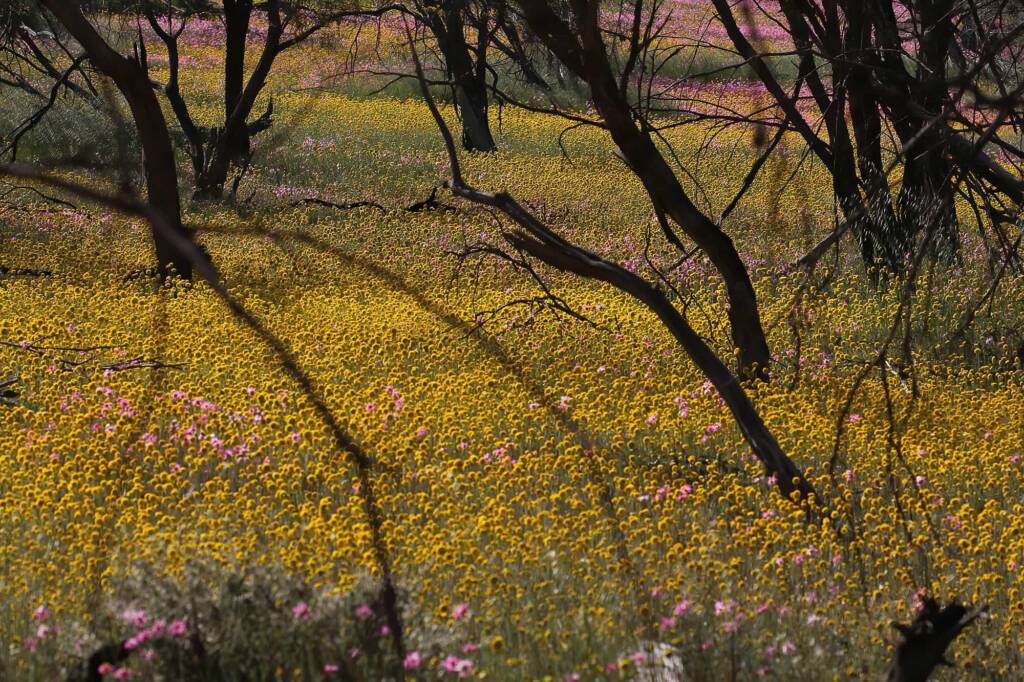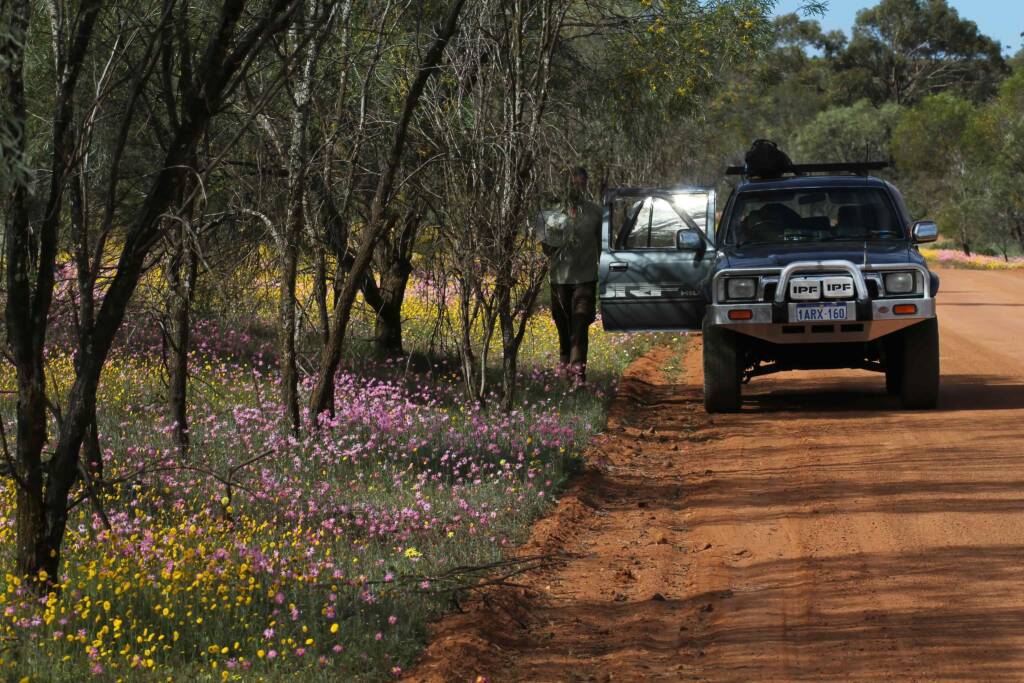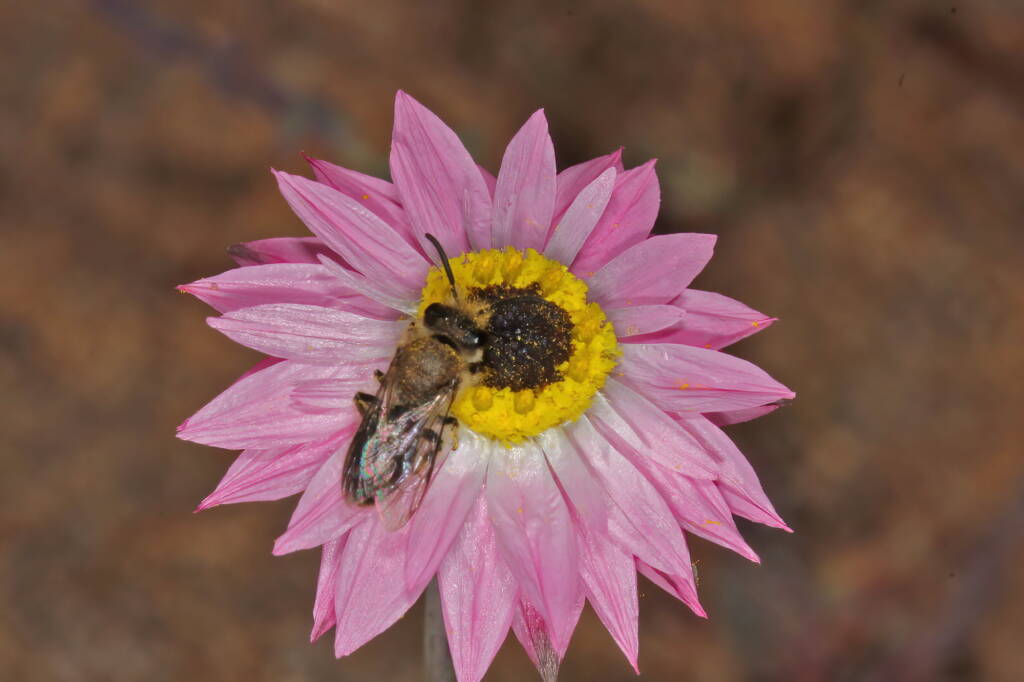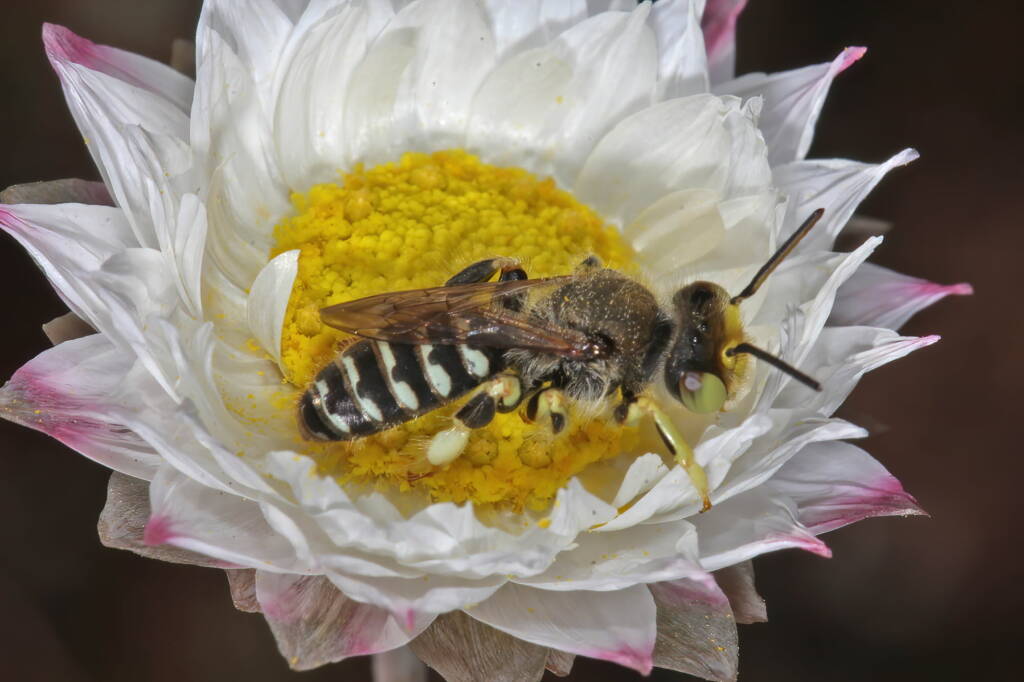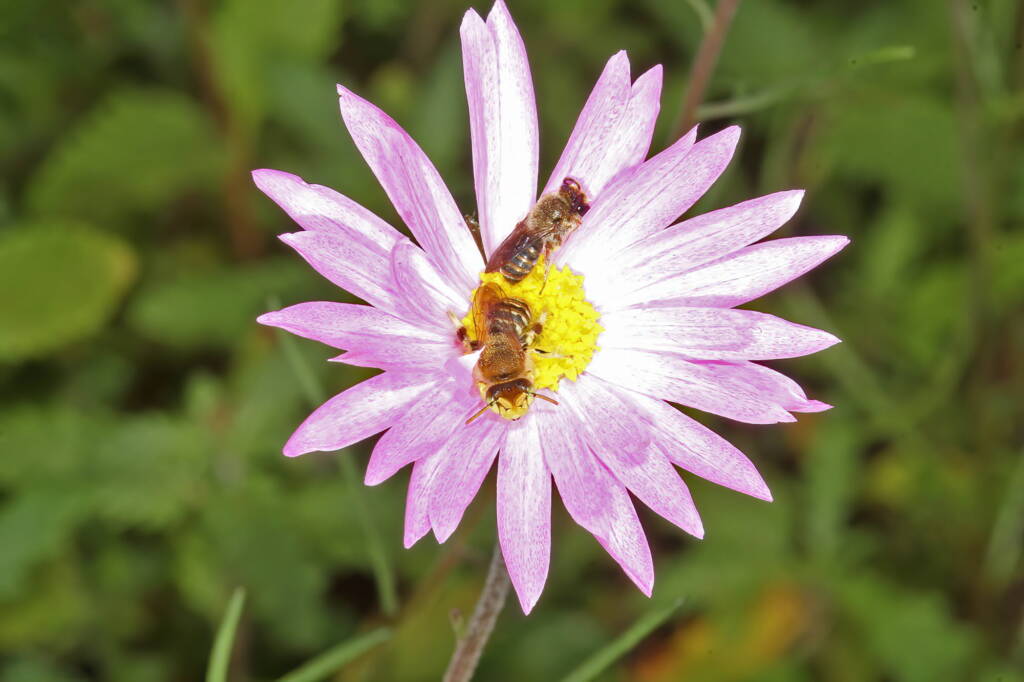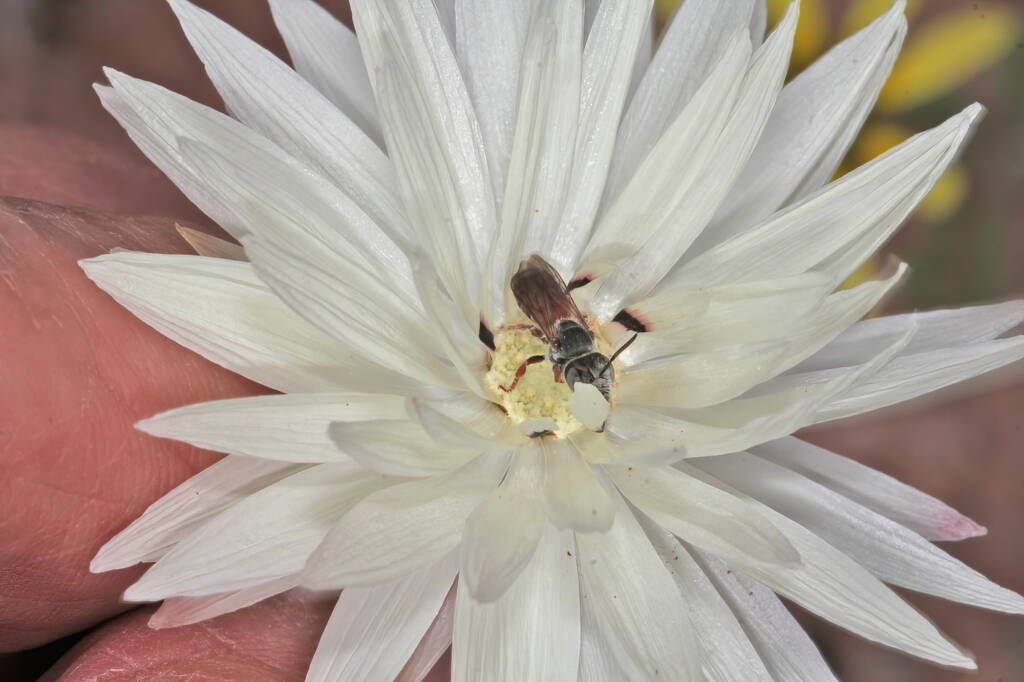Neopasiphae mirabilisFlower Selection Male and Female Nesting
Photographs © Marc Newman ◦
The Neopasiphae mirabilis distribution range is in Western Australia, particularly in areas where Western Australia put on their magnificent wildflower display, that include the everlasting paper daisies, such as Rhodanthe chlorocephala subsp. splendida (Asteraceae).
Both male and female of the species can be found in these daisy, collecting pollen and nectar.
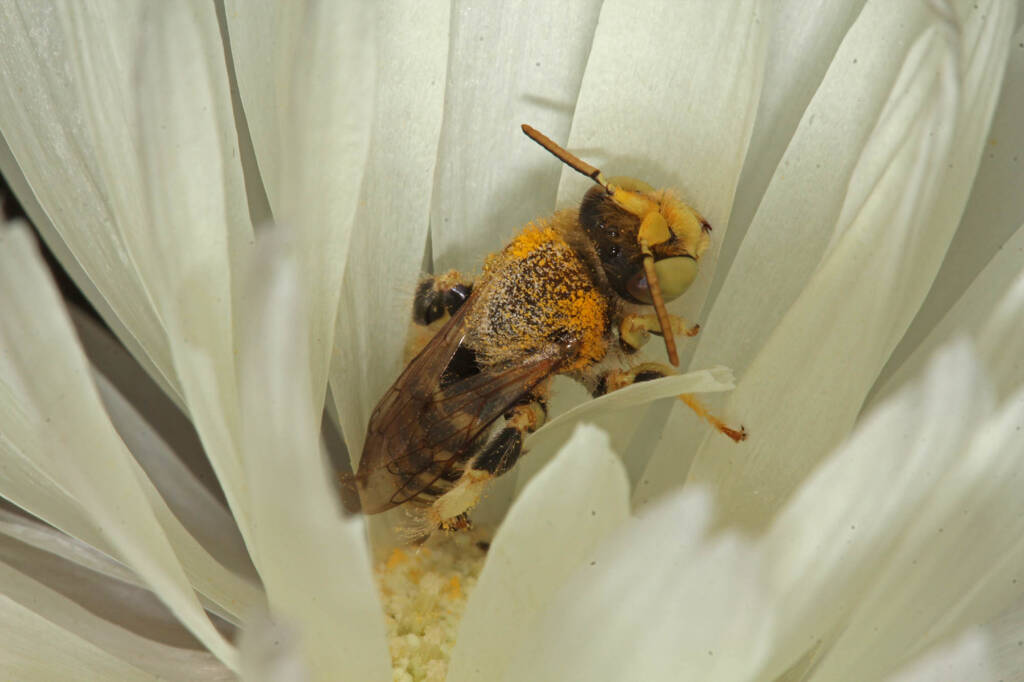
These everlasting put on a spectacular carpet display of large white flowers, that close overnight creating a secure place for native bees to shelter. A number of Neopasiphae mirabilis bees will also shelter together in the same flower, although this appears to be a roosting behaviour of the male of the species.2
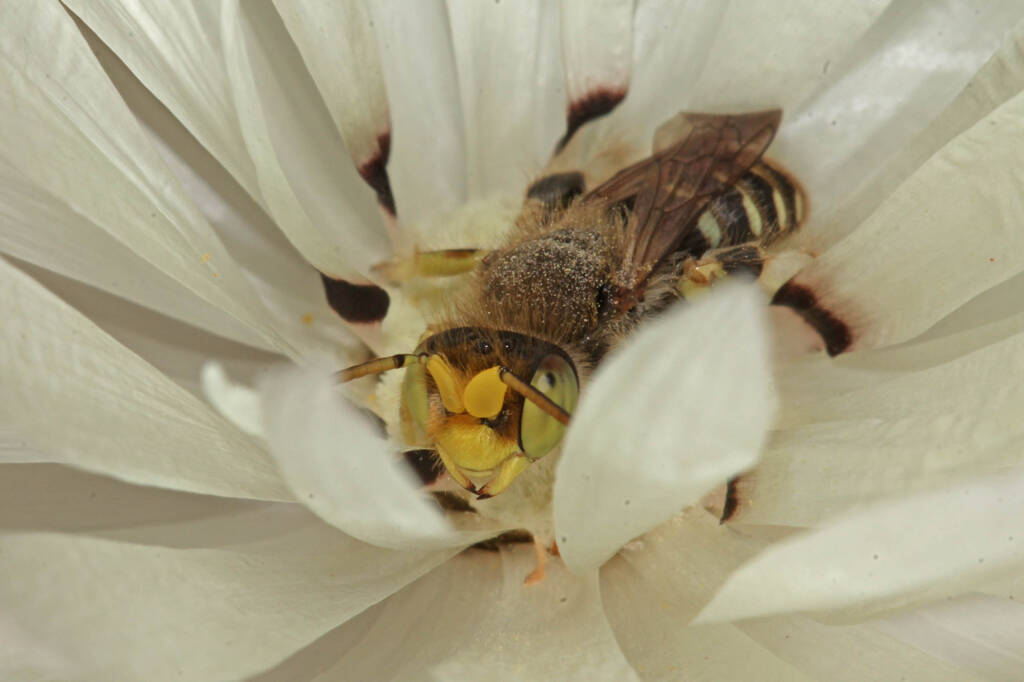
The photos shown here, including the following series of photos were of our GoBeeWA trip and the magnificent display of wildflowers where native bees were discovered (including Neopasiphae mirabilis).
Footnote & References
- Photographs Neopasiphae mirabilis, WA © Marc Newman, Flickr, https://flickr.com/photos/koolbee/albums
- Rhodanthe chlorocephala subsp. splendida (Asteraceae)… Overnight the flowers close creating secure place for native bees to shelter, Western Australian Herbarium, Facebook, https://www.facebook.com/WesternAustralianHerbarium/photos/a.391843657526178/877770358933503/?type=3
Neopasiphae mirabilisFlower Selection Male and Female Nesting
ColletidaeAmphylaeus obscuriceps Hylaeus spp – Masked Bee Callomelitta antipodes Leioproctus Neopasiphae mirabilis Paracolletes crassipes Paracolletes nigrocinctus Trichocolletes
BeesBees Anatomy Bee Behaviour Blogging Bees… Bees – image index Amegilla Bee Apis mellifera Austroplebeia australis Austrothurgus Braunsapis sp Ceylalictus perditellus Colletidae Euryglossinae Exoneura Homalictus Hyleoides bivulnerata Lasioglossum Lasioglossum (Chilalictus) Lipotriches Megachile Meroglossa Stenotritidae Tetragonula Thyreus Xylocopa

